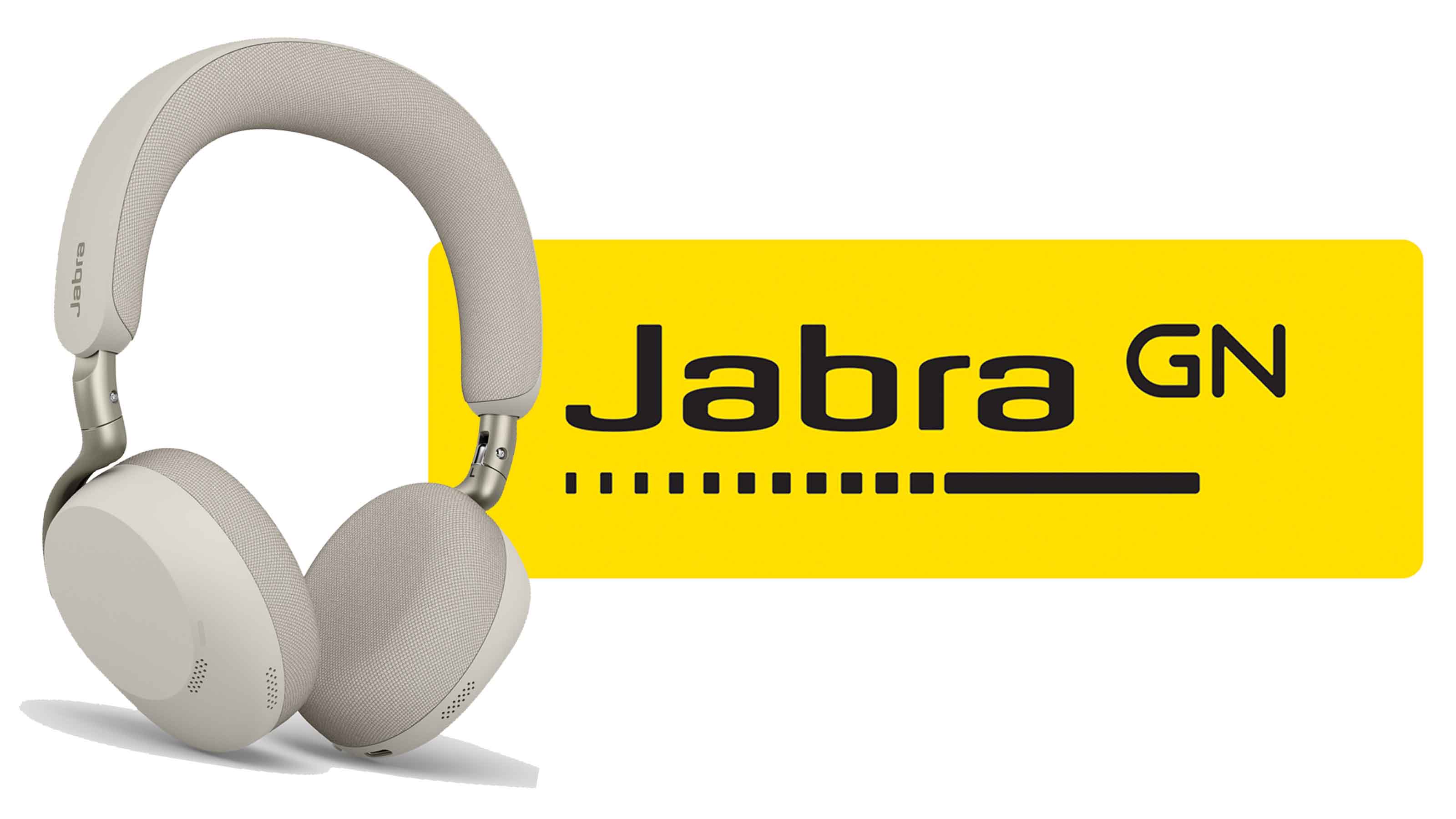Chicks Rule | Honoring Women in AV

A daily selection of features, industry news, and analysis for AV/IT professionals. Sign up below.
You are now subscribed
Your newsletter sign-up was successful
There are those who stand out because they’re different than the status quo, and then there are those who would set themselves apart in any crowd. Those are the leaders. They see themselves not as an exception, but a keystone in optimizing a group’s success. From their standpoint as an “other,” they conduct observations that go beyond the day-to-day and soon optimize the sum total of potential in a group. This is how the Women in AV have helped to build our industry. They may be seen as different from the norm, but they operate as a part of the whole. That spirit is what we honor in this special edition of SCN. What we hope our readers will see on the following pages are the philosophical ideals of leaders who set themselves apart even in an industry that set them apart demographically from the start.
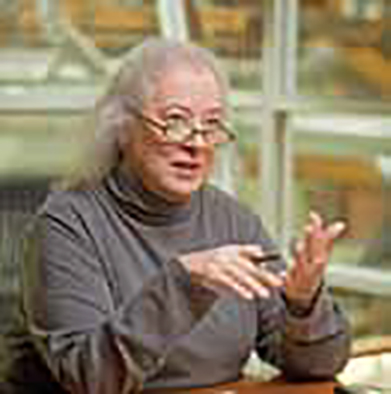
Helen Meyer, Meyer Sound
SCN: What initially drew you to AV or how did you come to be in the industry?
HM: My journey into the AV world began on my first date with John Meyer. We went to a concert and the sound was just awful. I distinctly remember him saying that he could do better. Once we married, John Meyer’s desire to improve the live experience continued as a passion, and in 1979, we decided to start our own company. At the age of 32, with two small children and no formal business training, I had to learn everything about running a business from the ground up, including accounting, customer support, marketing, and sales. Thirty-five years later, I oversee a company with 300 employees worldwide. I never could have predicted it.
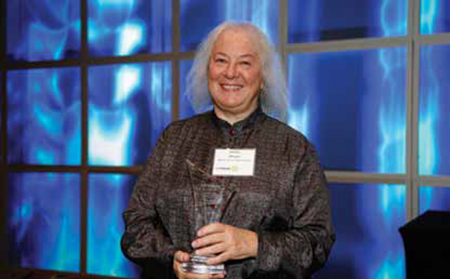
I still remember our very discouraging first meeting with the bankers, who treated me like I didn’t know what I was doing. It’s true—at that point I was new to the business, but I’ve never forgotten that experience and have since made a conscious effort to invest in people who are smart, passionate, and ambitious regardless of whether they have a typical resume.
SCN: What unique talent, skills, or perspectives do women bring to leadership?
HM: In general, I think women tend to show a better understanding of the value of a diverse workplace and strive to shape their organizations accordingly. Innovation often comes from teams with a mixture of different skills and backgrounds. The women I’ve worked with—whether they are running technology companies or non profit theaters—have all been great at taking initiative, displaying integrity, and striving for results. Perhaps it is because women feel they have to do more or do better in order to be taken seriously.
A daily selection of the top stories for AV integrators, resellers and consultants. Sign up below.
SCN: Do you think it is still necessary to have “women’s groups” in the industry? What would you like to see the industry do more for women?
HM: Yes, I do. It is no secret that the AV industry is still male dominated, just like most technical fields. When the gender scale is imbalanced, unequal opportunities are common and many women can find it challenging to change rules and stereotypes in an “old boys club.”
Meyer Sound is fortunate to have attracted a diverse workforce with many talented women across engineering, marketing, QC, manufacturing, and technical services. Many of them were former recipients of industry scholarships and graduates of the Meyer Sound education program. The opportunity for women in AV to come together over shared experiences is crucial in improving the representation among all sectors and at every level of our industry. Not only do we need to pay attention to cultivating opportunities for women in AV, we need to continue our focus on building the next generation of talented AV professionals… both male and female.
Lisa Thorburn, Thorburn Associates
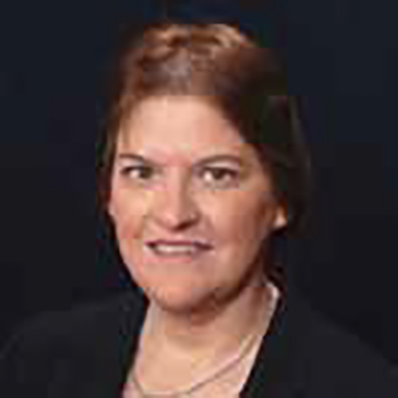
SCN: What was it like entering the industry when you did?
LT: When I first started in this industry, life was a lot simpler! Personal computers were relatively new and DOS was the operating system of choice. Macintosh computers were around, but no self-respecting technical person would ever consider using one—they were for artists, not engineers! Those of us who’ve been around a while will remember sneaker net, not a version of the internet, but rather storing a word processing file on a 5-1/4 inch floppy then walking it to whoever needed it—using your sneakers!
I will say there were not a lot of women in the industry. While I was often the only woman in sight, that didn’t bother me.
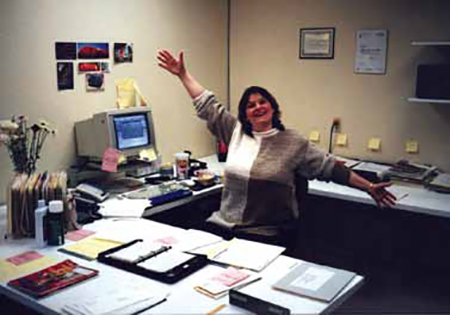
Growing up in a small town in Michigan there were only 10 kids in my grade school class, and just two of us were girls. When I got to high school the ratio was more even, but attending Michigan Tech, an engineering school in the upper peninsula of Michigan, the ratio was just one female for every four males. With a minor in computer science I was often the only woman in the room.
I also wasn’t afraid to speak my mind since my Dad did a great job of teaching me to think for myself and defend my thoughts. At dinner he would ask each of us kids (I was the youngest of six) what we had learned that day. When it got to me, he often said “That’s not true!” and I would have to defend whatever it was that I had learned.
By the time I started Thorburn Associates, I didn’t think anything of going to a project meeting and speaking up when I was the only woman.
SCN: What are some unique challenges that you faced as a woman in the industry?
LT: I’m always surprised when people ask this question because I don’t think about it that way. There are certainly challenges in this industry and I’ve had my share of them, but I don’t think the challenges are because I’m a woman—unless you want to consider dealing with jobsite toilets a challenge!
All joking aside, coming from a technical background has made it much easier for me to thrive in a technical field. Being a business owner and co-founder of Thorburn Associates, I was lucky in that I had more control of my career and the balance between work and home. I did not face the glass ceiling that many other women face, but I did (and still do) find it frustrating when people assume that my husband and business partner is the one in charge! I remember one time being told that he was obviously the “responsible party because he is a male and has his professional engineering license,” even though this industry does not require a PE. Because of this assumption, I was quick to bolster my credentials by writing articles for magazines and obtaining industry certifications such as my CTS and LEED-AP.
SCN: How has being a woman made a difference over the course of your career?
LT: I’d like to think being a woman has made me better—a better boss, a better consultant, a better designer. In an ideal world, being a woman wouldn’t make that much of a difference, but the reality is that when you are the only female in the room, everything you say and do is more noticeable and more memorable. This microscope effect makes you more conscious of your every action. Being more conscious of your actions makes you think about them a little more than you might have otherwise. I’d like to think the result is better decisions and actions on my part. It also makes you more determined to do a great job since everyone is paying attention to your results.
I think as a woman I am more intuitive and can see all sides of a situation. This ability to see all of the shades of gray, not just black and white, has provided me with valuable insights that have enabled me to implement creative solutions for my clients, my employees, and my company.
Also, being a woman-owned firm has opened doors for Thorburn Associates. As a certified women-owned business, we’ve been invited to participate on project teams that might not have otherwise considered us—just because we were women-owned. But once we get a chance, and perform successfully, we are always asked to be part of the next project. These opportunities have been a part of our success and I’m grateful for every architect, owner, and facility manager that has given us a chance, regardless of being women-owned or not.
Susan Lipp, Full Compass
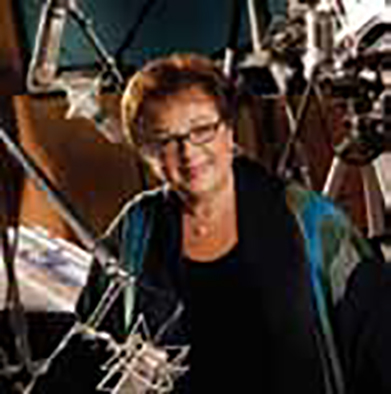
SCN: What initially drew you to AV or how did you come to be in the industry?
SL: I married the industry because I married Jonathan Lipp who started Full Compass and is now CEO. He had been a recording engineer and I had been general manager of a professional theater here in Madison. I met Jonathan while I was trying to get a public service announcement made for the theater, and he came through for us. I’ve now been in the AV industry for 36 years. My background was in advertising and PR and I realized that what I was doing was the same thing as what needed to be done for Full Compass—getting an audience. So it was simple for me to join the industry and to help create and grow Full Compass. The original Full Compass operation was in a 500-square-foot space; my own office is now three times that size. Our building is 140,000 square feet with more than 200 employees.
Some employees have been with us for over 30 years, which is really cool. I love the AV industry and the success has allowed me to being able to donate to some of my favorite causes. Last year I received the best award ever when the Lifetime Achievement Award for Philanthropy was awarded to Jonathan and me by the Association of Fundraising Professionals. I achieved my long-term goal of being a real philanthropist.
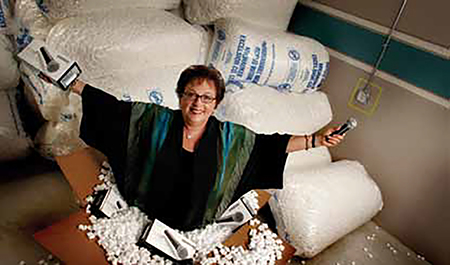
I’m thrilled that my sons and a grandson are in the industry. Steve Cohan owns Icon Digital, a Madison, WI -based professional audio business. Jeff Lipp is an AV consultant in Chicago. My 24-year old grandson, Jake Lipp, is a professional sound man in Chicago.
SCN: What unique talent, skills, or perspectives do women bring to leadership?
SL: It’s a man’s industry and I love being in it. What women bring is that we listen; it’s natural for us. We listen to customers’ requests and we ask questions. I have a handful of women salespeople and they are the best because they don’t just guess or jump to conclusions but really listen. We need them to find out what our customers really need and to figure out what they should sell.
SCN: Do you think it is still necessary to have “women’s groups” in the industry? What would you like to see the industry do more for women?
SL: This is important for those women who feel they have a glass ceiling. I’ve never found a glass ceiling and I knew I could accomplish anything a man can accomplish. I’ve never felt that I could not do anything that anyone else could do, in fact.
I would like the industry to make women feel that it was totally open to anybody, not gender specific. One of the finest recording engineers in the country is Leslie Ann Jones (Skywalker Sound) and I’m sure she has never felt pressure because she’s a woman. Why do some women feel that can’t do things guys can do? I don’t know the answer. The only thing I can’t do like a man is to stand up and pee. Basically, I went from the arts into this industry and the music business has been most exciting. It took hold of my life and kept me.
Jeanne Stiernberg, Stiernberg Consulting

SCN: What initially drew you to AV or how did you come to be in the industry?
JS: My entry into the AV industry started as a detour. My background is in speech and hearing, and in my graduate work, I did research in the psychoacoustics lab on how musicians describe tone qualities with the semantic terms like “bright,” “rich,” and “dull.” As I became exposed to the pro audio industry, I was intrigued by the ongoing research that was being done as part of some firms’ R&D activities. Then after 21 years in the communication disorders field, when I had the opportunity to join the nascent consulting practice that my husband started in 1993, I jumped in because I knew that this vibrant industry is bringing acoustics research to life.
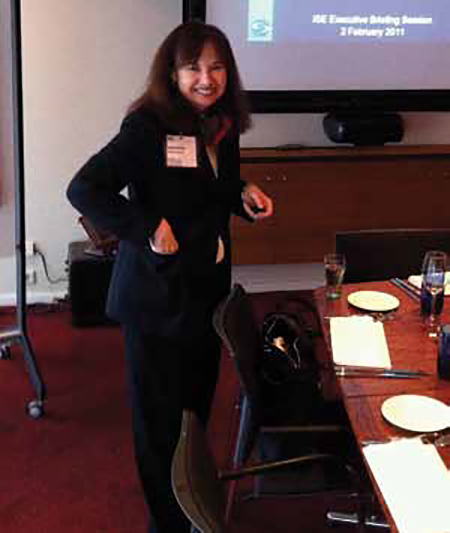
It was then that I discovered what many already know—all knowledge and all experience is transferrable if we just scope up a notch and apply it to novel situations. A background in management, communication disorders diagnosis, and treatment, and research was entirely applicable and generalizable at the “source code” levels. Early on I did have to learn about products, technology, and the language of “business.” It was like getting a second master’s degree. Interestingly, it seems that many in the AV field come from diverse career and academic backgrounds, and I believe this makes the industry stronger. Technology transfer and the broader force of “knowledge transfer” is occurring all the time to the benefit of industries like ours that are willing to recognize it and use it.
SCN: What unique talent, skills, or perspectives do women bring to leadership?
JS: Both men and women bring skills to the industry that they’ve adapted and learned from based on each individual’s set of unique educational and work experiences. That said, many women have had to think clearly about their life goals of balancing family demands with outside career demands, historically more so than men. As such, women tend to be pretty good at organizing and juggling multiple tasks and at bringing projects to a conclusion.
There are studies linking boys’ and girls’ play patterns to their communication and leadership styles. For example, historically many girls’ play involved collaboration and equal turn taking (vs. scoring the winning goal for the team). This can carry over to team leadership style, and many women are good collaborators, eschewing the “MVP” role. However, as play patterns now are becoming less gender specific, these generalized differences in team leadership approaches are likely to fade.
SCN: Do you think it is still necessary to have “women’s groups” in the industry? What would you like to see the industry do more for women?
JS: Idealistically and in a perfect world, there should be no need for “women’s groups” per se. In our current era, on a practical level, however, it still is highly beneficial to have “women’s groups.” There’s a clear reason for this. It’s vital that our growing industry reach out to and engage new talent. Women’s groups can work toward that as well as toward executive skill development. More girls need to be encouraged to excel in math and science and engineering. And we need to make more girls and women aware of the AV industry. It’s really simple; if all our industry focuses on attracting is half the population, we won’t realize our full potential. Right now there are more and more women in the industry, but they tend to be clustered a lot in middle management and in non-technical jobs. That elusive quality of “leadership”—tough to define but easy to spot—is an equal opportunity role. The key word here, though, is “opportunity.” More women need to be made aware of the opportunities in our industry.
How will we know if “we’re there yet?” We’ll know there’s no more need for women’s groups when there’s a greater proportion of women at all levels and in all facets of the industry, and that includes installers, systems designers, programmers, engineers, and CEOs.
Jan Sandri, FSR

SCN: What initially drew you to AV or how did you come to be in the industry?
JS: I started in this industry nearly 35 years ago working for AV services and subsequently founded FSR with Bill Fitzsimmons and Charles Rodriquez. Our initial product ranges were developed to answer the industry need for control modules and metal integration products and included our now renowned floor box series. The rest is history!
SCN: What unique talent, skills, or perspectives do women bring to leadership?
JS: Whether it’s the AV industry, politics, or the corporate world, women bring a unique perspective, understanding, and skill set that complements men. Women possess an innate talent to multi-task, and we are passionate—and sometimes pushy—about what we do. Most of us do our jobs, raise a family, volunteer at community groups, and never miss a beat. Our biggest problem is we take care of everyone except ourselves.
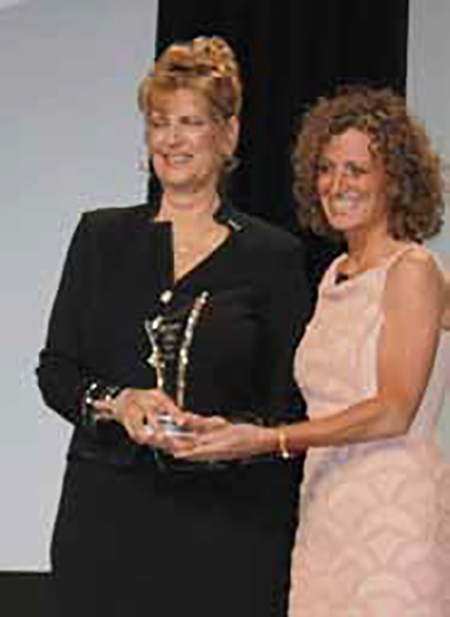
SCN: Do you think it is still necessary to have “women’s groups” in the industry? What would you like to see the industry do more for women?
JS: Women’s groups are important for several reasons. They give us an opportunity to celebrate successes, commiserate about failures, and always learn from each other. Groups help us continually improve our networking skills and connect with colleagues around the globe to enhance both our personal and professional lives.
Cory Schaeffer, Listen Technologies

What was it like entering the industry when you did?
CS: I entered the industry in the late 1980s with a company that at the time was primarily into radio broadcast. I came into a marketing role at “entry level,” and when I left I was running the teleconferencing division.
The company and the industry were male-dominated, yet in the marketing department I worked with two other women. We interacted with engineers, and the marketing we did was very technical in nature. We worked with many specifications, and I found the people I worked with to be extremely knowledgeable, technical, and generous with helping me learn the technology and technical lingo.
As I look back on this time, I am struck by how much progress we have made as an industry regarding treating women as equals. I can think of several examples of inappropriate conversations that didn’t even register to me in the moment. In fact, during a certain interview, I was asked, “Are you going to ever have kids?” I’m not kidding! I was interviewing with a vice president, and I didn’t even flinch when he asked the question, nor did I reflect on how inappropriate it was at the time, but now it is very clearly sexist and unacceptable. Other women I met after that had similar stories of inappropriate comments from that time. Thinking about it now, it is funny to me, as that is just how it was then, and it’s a very different atmosphere now.
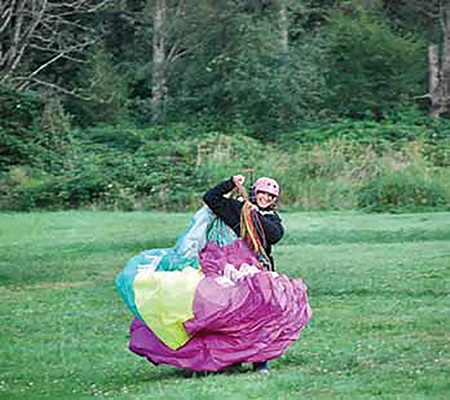
What are some unique challenges that you have faced as a woman in the industry?
CS: I think most of the challenges have all been around being “technical.” Meaning, if you’re a woman, the assumption is that you’re not technical or simply cannot understand technical discussions. It still happens occasionally; however, early in my career before asking a question, many men would preface the question with “I have a question that’s technical in nature…” My response was always, “Great, what is it?! [Bring it.]” Most of the time I could answer it, and they would be surprised. I actually never saw it as a challenge; I rather enjoyed surprising them, and still do.
My goal has always been to be truthful and open. If I know the answer, I’ll answer it. If I don’t, I’ll tell them I don’t, but that I’ll find out and get back to them. This approach has served me well, because if I don’t know and I get back to them with the answer, we both learn. I’d rather learn than just pass the question off. Also, I’ve never been afraid to ask questions, since I can always learn and grow through the experience. I learn a lot by asking questions as to why something is important and what the application to a solution is. I’ve found this industry as a whole to be generous, with others often going above and beyond to help me continue to learn and grow.
How has being a woman made a difference over the course of your career?
CS: I have no idea how to answer this because all I know is what it’s been like being “me”; I have no other experience to compare it to. I’ve found this industry to be an incredible community to learn and grow in. I’ve always been able to get the appointment and to get in to see whom I’ve needed to see. I’ve been given great opportunities within each company I’ve worked in, and I’ve advanced in my career with each organization.
I’ve been asked to serve on boards, help with causes, train, speak at events, etc. I’ve found that the men in our industry are very supportive, and when I’ve reached out for help, there have been many willing to step up to help. This industry is extremely generous, and I’ve benefited greatly by the generosity of many. Honestly, I find this topic difficult, as I get a lot of attention from our industry because I’m a woman, yet I just want to have the opportunities because of who I am, not because of my gender. My goal is for “gender” to not matter in this industry; on the other hand, I also would love to see more women in the industry. So I make it a point to do whatever I can to uplift more women so that they have opportunities like I’ve been given!
Power Players
What stands in the way of there being more women in AV?
Cathy Hutchison, Idibri
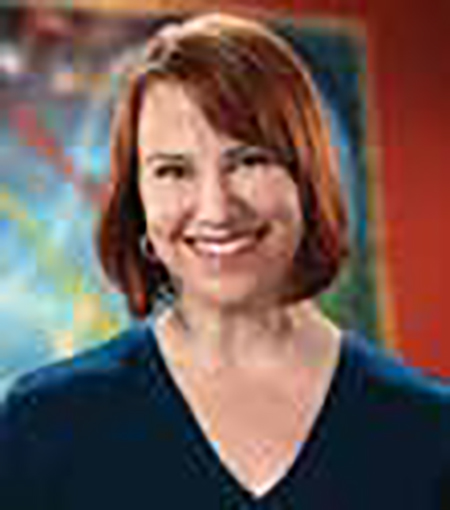
The structure at Idibri has facilitated success. I’ve always had a seat at the table when it comes to strategy. Craig Janssen, our managing director, is particularly good at seeking counsel from the team based on strengths rather than hierarchy. So even in the beginning, before I had the experience I have now, I was allowed to participate in high-level conversations. This is core DNA for the firm. Gender and age aren’t part of the equation.
Another factor was flexibility. When I had children at home, Idibri allowed me to shape my hours to accommodate after-school pickup and other realities of family life. We have many families with small children and schedules can be crafted to support those needs.
I happen to be on the marketing side. On the engineering side, as much as we want to hire for diversity, the number of women applying to work at our firm is much lower than the number of men. My guess is about 20 to one. I think if we want to see real change in the numbers, the challenge starts way before people are ready to enter the workforce.
Carolyn Davis, SynAudCon
Art precedes science. Women in audio have chosen that profession because they love music, dance, and drama. They want to work in that environment: theater, staging, recording studios, touring with bands—salary and comfort level is not a high priority. If salary and physical comfort is a high priority, women will chose administration within the audio world, and that can be very satisfying.
Amy Fulton, VCA

The AV industry is evolving and at an increasing rate. At VCA we have women holding positions in director roles, testing and verification, engineering, as well as AV technicians and staffing. As IT continues to evolve into our industry, I think we will continue to see the expansion of women’s roles within what we term as the AV industry. However, on a whole we need to do a better job at recruiting and training women. Women have an amazing way of communicating with people and possess great attention to detail. Those characteristics would help many organizations thrive and better their processes and efficiencies in jobs across the board.
It is no longer the traditional “AV Club.” I believe that not only are our industry leaders opening their eyes to the many talented women who can help their organization thrive, but that women are seeking career moves into this industry in which they can make a difference. Communication technology is moving quickly and there are more opportunities for women to jump in at many levels and pursue an exciting career. Pretty happy to be part of the club.
Grace Paoli, Community Professional Loudspeakers

The AV industry needs to be more proactive in unveiling the exciting potential that is available to women in the engineering, technology, sales, and marketing arenas.
From my own experience, it was serendipity that I was placed in a temporary job assignment working with a successful AV company. I was fortunate that these professionals were extremely enthusiastic to teach me, from which I gained considerable insight and knowledge.
There doesn’t seem to be any set entry route into the AV profession. Possibly, audio video technology and computer control should be promoted to women as a basic intro curriculum in school.
In order to advance in this industry it is necessary to take advantage of certification, network opportunities, and ongoing education with associations such as SynAudCon and InfoComm.
In the end, nothing stands in the way if you have passion and want to succeed in any endeavor.
What is your advice to women entering the industry?
Melody Craigmyle, Almo Pro A/V

Absorb as much training as you possibly can, especially from the manufacturing partners. This will enable you to learn how the products and services fit into the market and, in turn, will enable you to be a real valueadd to your customers. Also, give back as much as you can—find a cause that benefits the industry and that you are compassionate about, and do something to make a difference.
Hailey Klein, Vaddio
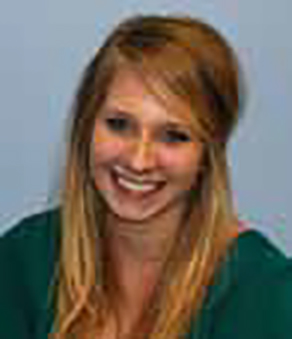
Get involved, be social, and find a mentor so you can become a mentor.
When I entered the AV industry, I had no idea what I was getting myself into. Frankly, I just wanted a job in marketing; I couldn’t afford to be too picky after that. Then I discovered what this crazy, cool industry was about. I was fortunate enough to have a couple really solid mentors to look up to. They taught me to get involved as much as I possibly could. I installed equipment we use for our shows, got active in social media—an awesome networking tool and a great way to find more mentors—and continuously try to take as many webinars/classes that I can. Of course this is a male-dominated industry, but that doesn’t mean you have to be treated with any less respect. The more you can teach yourself about the industry, in any aspect, the more confident you will feel, and people will respect you for it. The more contacts you can make in the industry, the more you will enjoy it. Participate when the opportunity presents itself and dive in headfirst. This is the best advice I can give.
Are there differences between women in AV versus women in business or tech in general, and if so what?
Brenda Brown, SynAudCon
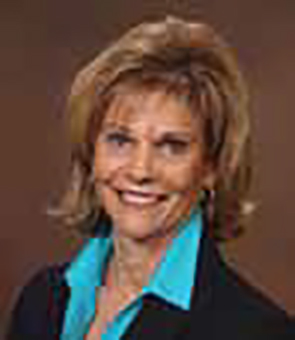
I have experienced both so this question is easy for me to answer. I worked 20 years as a registered nurse in critical care and ER before entering the AV industry. I came from a female dominated profession to a male dominated profession.
The differences are many but there are two that stand out. With nursing, I was surrounded by a team of women, and together we felt strong. In AV, women are often alone. It took me time to gain the skill set and confidence to work alone.
With nursing, I enjoyed having like-minded girlfriends around me. Lunches were fun with plenty of conversation. I now share my lunches with a group of men and most of them are engineers. The conversations are still fun but very different.
The national average for women engineering students is 18-20 percent. The average male to female ratio that attend SynAudCon’s seminars is 30:1. Because of this, I think the women need to work harder to prove themselves, especially initially.
Women and men have different strengths. Women’s strengths often complement men’s strengths. Kudos to the companies that recognize women’s strengths and use them.
Deb Britton, K2 Audio
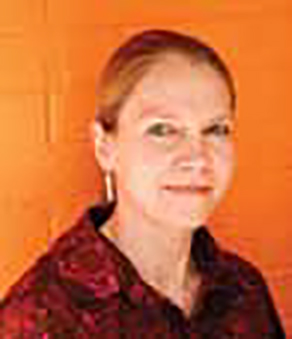
I began my career in AV immediately after college, and have worked as a consultant in the industry ever since. This is the only profession I’ve known, making it difficult for me to comment on differences between being a woman in AV compared to the business or tech fields.
I can say this: I continually get confused looks when I tell people what I do. It seems that the fields of AV consulting and contracting are largely unknown outside of the construction industry. Until AV becomes recognized by educators as an actual career path, it will remain a struggle to interest bright young individuals in my profession, let alone bright, young women.
I was lucky enough to be exposed to the AV industry through a practical acoustics course taught by actual consultants. A light bulb went off for me—this is something that people actually do for a living!
For me, it’s less about being a woman in an industry comprised mostly of men, and more about reaching out to younger people. I have two instructors to thank for where I am today. It’s high time that I do my part, and hopefully influence some young women along the way.
Wesley Smith, PreSonus
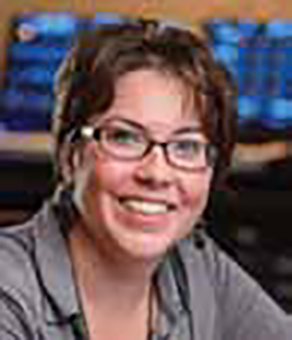
The growth of women joining the audio industry seems to be more exponential than in business or tech in general. Groups like the Rock Camp for Girls and the Women’s Audio Mission are definitely doing a lot to help with that. More than in other industries, I find that women in audio have to tolerate more “for a girl” remarks (e.g., “you know a lot about audio for a girl”). Men tend to question how women in audio learned their skills or became interested in the industry, as if it must be a very different experience from their own. This is still one of the biggest differences I find in my experience versus those of my friends in other industries. The good news is that women are becoming less of a curiosity, and men coming up in the industry are way more accepting of their female colleagues. This is thanks to women in the industry mentoring and helping each other. I’ve been fortunate to have some great male teachers and mentors, but my transition from studio assistant to running my own sessions wouldn’t have been possible without the female audio engineer who took me under her wing.
What is your advice to women entering the industry?
Erin Bolton, MarketStar
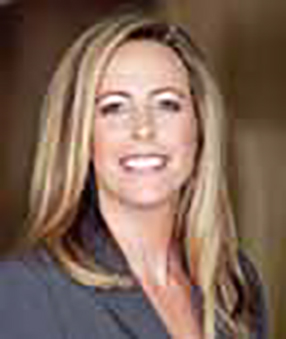
Here are three suggestions I believe to be extremely helpful to women entering the AV industry:
Secure Mentors Through Involvement - This industry has many brilliant and talented women and men interested in coaching, supporting, and mentoring women. Get involved in councils, groups, and committees. Seek out and secure strong mentors. Let them guide, assist, and advance you in your journey navigating the AV industry.
Know the Technology - It will happen. There will be times where others will underestimate you and assume you know far less about the technology than you really do. Don’t be disappointed. Instead, gather your strength, lean in, and showcase your expertise and technological competency. You’ll appreciate that magical moment when you are recognized as not only smart, but a burgeoning asset for the AV industry.
Stay Confident - You are an intelligent, talented, tech-savvy woman— don’t forget that. Working in a maledominated industry can feel intimidating, but you’ve earned your right to be here. Don’t lose that confidence—it will give you strength in your challenging moments and reward in your times of great performance.
Sandi Stambaugh, SYNNEX
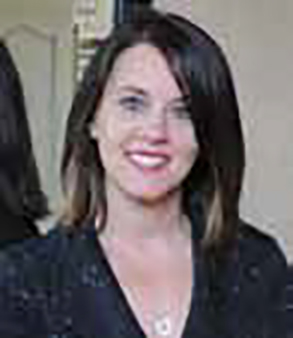
The best advice I can give women entering the industry is to dive in and take advantage of everything it has to offer. Take the time to educate yourself. You don’t have to be an expert on everything, but having background knowledge to pull from regarding technology, vertical markets, the competitive landscape, market conditions, and more can help support your growth and make a positive impact on your business.
Get connected. We are lucky to work in an industry filled with talented people who have unique and valuable experiences to share. Take the time to get to know them, ask questions, and learn from them—every relationship adds value and ultimately helps you become the person you are meant to be.
Work hard but don’t take yourself or your work too seriously. Some women try so hard to overcome the “woman thing” and begin to lose sight of what truly matters. Our business is a relationship business. It’s okay to open up, relax, and give people the benefit of the doubt. The alternative, while sometimes effective, is not much fun and will not satisfy in the long run.
My final piece of advice is to be present and speak up. Don’t settle for the background— take a seat at the table. Don’t let the stereotypes about women in the workplace impact who you know you can be. In the end, it’s up to us to work hard, create relationships, educate ourselves, and ultimately prove ourselves at work. It’s not a “man thing” or a “woman thing”—it’s a you thing.
